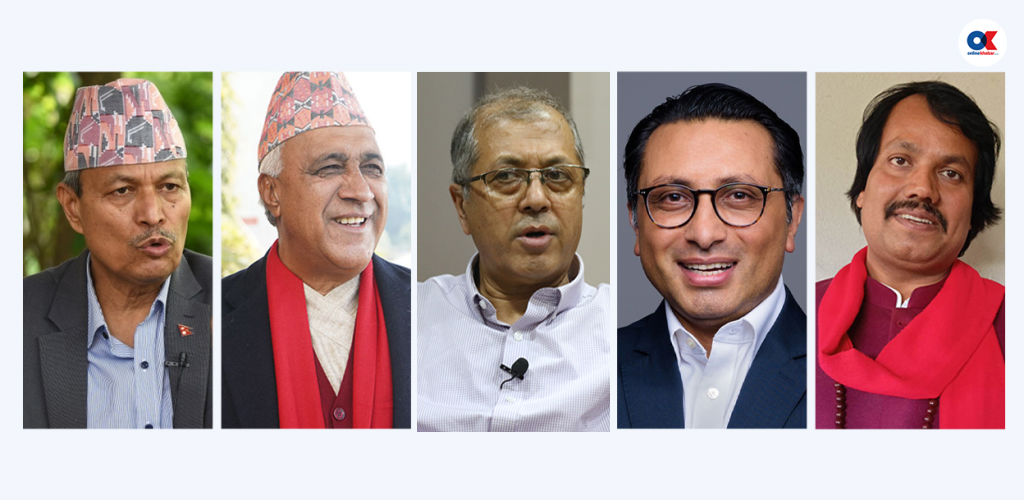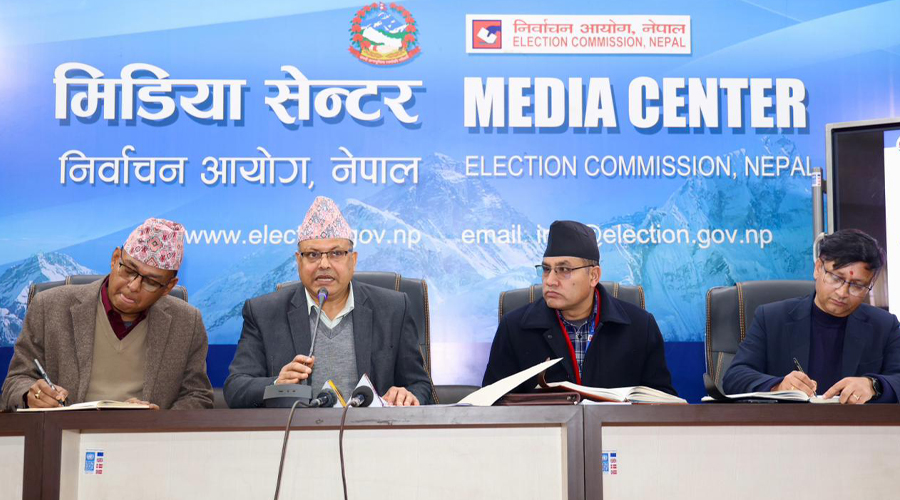This is Nepali Congress leader Sher Bahadur Deuba’s second attempt to win the party presidency. This time, though, Deuba is a main contender for the post. Many consider this as Deuba’s last bid at winning the top party post.
The 69-year-old has been in Congress politics for about 50 years. Deuba knows president of the largest political party is the prime minister in waiting, so this former prime minister will do every bit to bag the presidency during the NC’s 13th general convention. On the other hand, ending a long political career as NC President will be great. So, Deuba is taking this race quite seriously.
Born in Dadeldhura district on June 13, 1946, Deuba entered politics when he was a student. He is a founding central member of the Nepal Students’ Union and its first elected president.
With the establishment of democracy in 1990, Deuba emerged as a youth leader of the Nepali Congress. In the partliamentary elections held two years later, he got elected from Dadeldhura, leaving his contender behind with a huge margin. In the Girija Prasad Koirala government formed after the polls, Deuba became Home Minister.
Deuba also won parliamentary elections held later. He won both the Constituent Assembly elections, one from Dadeldhura and the other from Kailali. He became prime mihister in 1996.
When the Nepali Congress split due to internal differences, Deuba formed the NC (Democratic) and became its chair. Before the first CA elections, the two Congress parties became one.
From 2008 till 2012, Deuba worked as vice-president of Socialist International. Since 2013, he has been working as its Asia chapter as well as its international vice-president. He holds a MA (Political Science) and BA in Humanities as well as Law. Deuba was a research fellow at London School of Economics from 1988 to 89.
In course of movements for democracy, Deuba has spent a total of nine years in jail.
Deuba got married to Arzoo Rana when he was 45. They have a son. Like Deuba, his wife is also a Member of Parliament from the NC.

The Story of his rise
Deuba was dear to Nepali Congress leader BP Koirala, though he did not get the opportunity to work closely with Koirala for long. BP was in jail when Deuba got into politics. After release from jail, BP went into exile in India. Deuba got the chance to work closely with BP only after the latter returned to Nepal. That was 39 years ago.
Hari Adhikari, an expert on Nepali Congress’ history, says, “From 2033 till 2039 BS, BP used to take Koirala with him wherever went.”
In those days, people used to accuse BP of trusting Deuba too much. And BP would respond thus: This fellow wants to learn everything, others don’t care. Due to BP, Deuba got unanimously elected as NSU president twice.
Deuba had cordial relations with BP’s younger brother Girija Prasad Koirala as well. But the relations worsened after Deuba refused to engage in a conspiracy against Congress leader Krishna Prasad Bhattarai in byelections (1994), says Adhikari. In the government formed after 1991’s parliamentary elections, Prime Minister Girija Prasad Koirala had given Deuba, Ramchandra Poudel and Shailaja Acharya the opportunities to choose ministerial portfolios. Deuba chose Home Ministry, Ramchandra chose Local Development Ministry, whereas Shailaja chose the Agriculture Ministry.
Deuba acted tough while he was in charge of the Home Ministry. Deuba acted tough against the street-based movement that the CPN-UML had launched protesting the death of UML leader Madan Bhandari in suspicious circumstances. But that tough image was gone when he became prime minister of a coalition government. At that time, Deuba emerged as a leader, who would go to any length to retain his post.
Deuba initiated important projects (some of them were controversial) when he was prime minister. The controversial Mahakali Treaty materialised during his prime ministership. His government introduced a VAT regime, tried to make the Commission for the Investigation of Abuse of Authority more powerful by enacting suitble laws and declared bonded farm labourers (Kamaiyas) free. His government tried to bring underdeveloped regions, marginalised communities, women, Dalits, Janajatis and Madheshis into mainstream of national development.
National Women’s Commission, Indigenous Nationalities Commission and Dalit Commission took shape when Deuba was in the government.
Critics often accuse Deuba of giving a bad name to the parliamentary system. Horse trading in the Parliament was a controversial legacy of his prime ministership. His government’s decision to give away Pajero to all lawmakers by waiving customs came under fire. He would form jumbo cabinet to make sure that his government does not topple. This move also came under criticism.

A turning point
In the Congress, Deuba, Poudel and Shailaja used to be leaders of equal standing. But on September 12, 1995, he became prime minister. That was a turning point in his political journey.
In the meantime, through mid-term elections, the CPN-UML emerged as the largest party and formed a minority government, consigning the Nepali Congress to the opposition bench as the second largest party. Half a dozen NC leaders, including Deuba, Poudel and Khum Bahadur Khadka, were in the fray for the post of the party’s parliamentary party leader. Later, top three leaders — Girija Prasad, Krishna Prasad Bhattarai and Ganesh Man Singh — made all of them, save Deuba, withdraw their candidatures. The idea was to select a leader for the post on the basis of consensus. In the end, Deuba got elected to the import post unopposed.
Later, the Congress filed a no-confidence motion against the Manmohan Adhikari-led UML government under Deuba’s leadership. Manmohan announced mid-term elections, but the Supreme Court scrapped the announcement. Subsequently, the Congress formed a coalition government by bringing other parties, including RPP, on board. Deuba became prime minister of the consensus dispensation.
So far, Deuba has become prime minister thrice. The last time he became prime minister was on June 3, 2004. The CPN-UML had joined the Deuba government, claiming that regression was half-corrected. But on February 1 2005, King Gyanendra fired Deuba, chair of the NC (D), describing him as inept.
Strengths
- Deuba, the three-time prime minister and one-time home minister, is a pivotal character of Nepali politics and not of the Nepali Congress alone
- He can react promptly. Deuba can take decisions quickly and can remain firm on his decisions
- His international relations are excellent. He was considered close to the United States. It is believed that he enjoys cordial relations with the Indian establishment
- Deuba is a maverick politician. While his contemporaries have not become prime minister even once, Deuba has held the top position thrice. This shows how clever he is. Deuba’s fans say he moves ahead by taking those around him into confidence
- He stands for leaders and cadres, who are close to him. That’s why his faction is pretty stable. He has a group of loyal leaders and cadres by his side. He enjoys their constant support
Weaknesses
- He can go to any length to achieve the position of power and retain that position, according to critics. He has made compromises to become prime minister and retain the job, they say
- Deuba is well-educated, but his intellectuality has not come to the fore. He has not been able to give new vision and ideology to the Congress
- And Deuba is not a good speaker. His speeches are often confusing. He gets angry on slightest pretexts
- The NC leader, of late, has come under fire for leading a luxurious life.

























